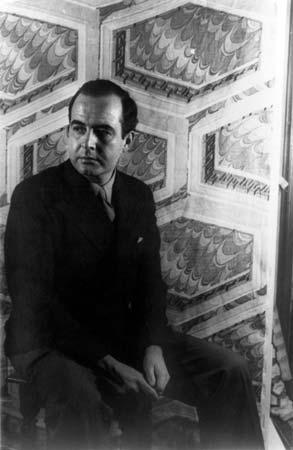You are here
Barber's Uncompromised Violin Concerto
The Violin Concerto by Samuel Barber has an interesting provenance. It was commissioned by Philadelphia industrialist Samuel Simeon Fels, who headed the company that developed Fels-Naptha soap, and premiered in 1941 with the Philadelphia Orchestra. The soloist was Albert Spalding, whose uncle of the same name was a Hall of Fame pitcher and founder of the National League as well as the Spalding sporting goods company.
The first movement, marked allegro, is deeply felt and intensely melodic; the second is a lovely andante. The third movement is a brisk, exciting and very demanding moto perpetuo.
The concerto was intended as a showpiece for Fels’ ward, Iso Briselli, who graduated from Curtis Institute in Philadelphia in 1934, the same year as Barber. (Mrs. Fels was a founding board member of Curtis.) However Barber and Briselli had a falling out over the third movement. Briselli, prodded by his violin teacher, felt the very short third movement wasn’t as substantial as the first two and asked for something showier. Barber refused to rewrite or alter it. “So we decided to abandon the project,” Barber wrote, “with no hard feelings on either side.”
See for yourself if you think the third movement is lightweight or insubstantial.
The soloist for the Evanston Symphony’s performance is Desirée Ruhstrat, an award-winning violinist who currently plays with the Lincoln Trio and teaches in the Chicago area and at Indiana University. Her first major performance was with the Milwaukee Symphony at age 14 and she appeared with the Chicago Symphony under the baton of Sir Georg Solti just two years later. Since then she has appeared with orchestras and in chamber music groups throughout America and Europe.
Ms. Ruhstrat will also perform the solo violin part in Arvo Pärt’s Fratres for Violin and Orchestra. Pärt was born in 1935 in Estonia but for many years has been a resident of Berlin. He first composed the mesmerizing and beautiful Fratres (Brethren) in 1977, but the version the ESO is performing was written in 1992. Pärt has written that it represents “the instant and eternity… struggling within us.” Fratres is one of the most frequently performed pieces of music composed in the last 50 years, and selections from it have been incorporated into films and even jazz compositions.

Samuel Barber in 1944